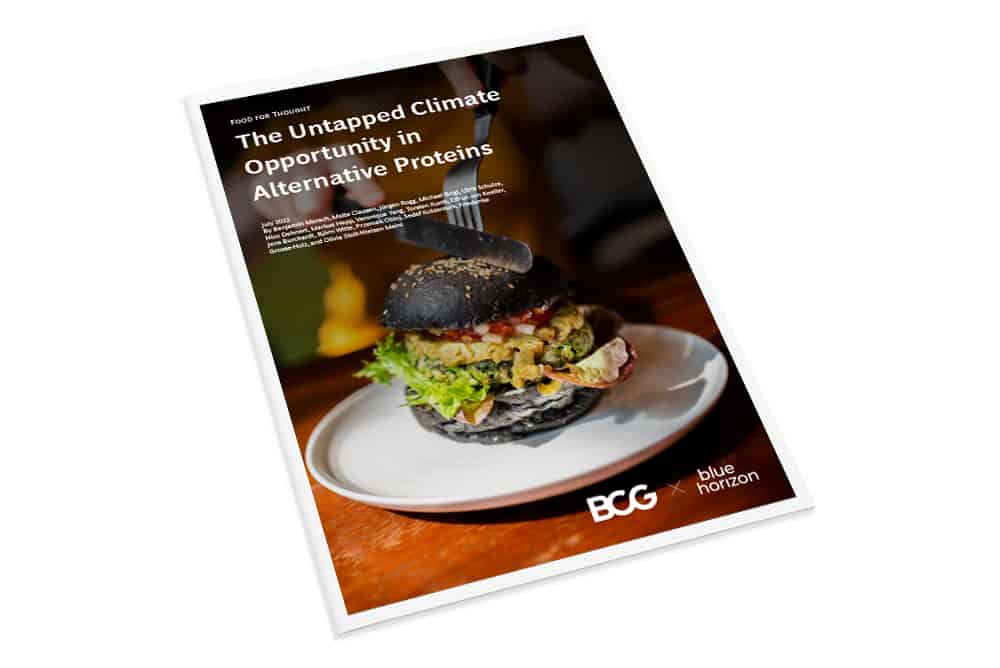The second part of the latest research from Blue Horizon and BCG, following the first instalment last month, finds that consumers are embracing alternative proteins and that protein transformation is one of the best tools available to combat the climate crisis.
The study, titled ‘The Untapped Climate Opportunity In Alternative Proteins’, finds that almost a third of consumers would switch their diets to alternative proteins if doing so would have a major positive impact on climate change.
“In time, some long-standing processes, such as animal slaughtering and meat packing, will become obsolete”
Food for Thought Report co-author Bjoern Witte, Managing Partner and CEO of Blue Horizon, here offers his commentary on the report.
“Globally, there has been an increase in the number of people buying alternative proteins. In our first Food for Thought report in 2021 we predicted that alternative proteins would represent 11% of all protein consumption by 2035 and with some help from technology, investors, and regulators, alternative proteins could command 22% of the global market by then.

“However, the protein transformation is only one part of a broader remodelling of the food system that will help us to combat climate change. In time, some long-standing processes, such as animal slaughtering and meat packing, will become obsolete as new technologies and processes address critical issues such as taste, health, and cost, increasing the appetite for alternative proteins.
“the protein transformation is only one part of a broader remodelling of the food system”
“With these predictions, there will likely be major opportunities for many stakeholders along the food value chain to contribute to a sustainable food system as a result of the transformation. As a result, the key question becomes, how can each player take advantage of this opportunity?

“Currently, food industry players are facing big changes and big opportunities as a result of the shift to alternative proteins and new processes and approaches need to be implemented to transform multiple long-standing paradigms, changing certain steps along the value chain radically.
“There is at least $295 billion market capitalization at risk among public food companies who lag behind in the protein transformation – managing such risks and opportunities is a business decision as much as it is one about the planet. The positive impact is absolutely massive, and secular drivers have never been stronger—the time to invest is now.”





